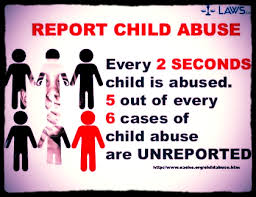
Yesterday I published a post arguing for monitoring of home schools to prevent cases like the horrific story of the Turpins in California. But we really can’t be sure if regulation of home schools would have prevented the horrific abuse of these children. Even if David Turpin had not registered his home as a school, he would not have been caught unless somebody reported his children as truant. Given the silence of their neighbors and family about the disturbing signs of maltreatment, they might have been equally silent about the children’s apparent failure to attend school.
The silence of neighbors and family despite multiple signs that something was terribly wrong in this family was striking. There were numerous red flags. One neighbor reported trying to speak to some of the children when they were outside of the house. She reported that they “froze,” “shut down,” and were “terrified.” They also appeared thin and malnourished. And yet the neighbor did not notify authorities.
Multiple neighbors told reporters that the family was only rarely seen working in the yard or getting into vans at odd hours and always responded to greetings with silence. as a representative of the Riverside County Department of Social Services told USA Today, “Not one person called us. How sad,” she said. Sad indeed.
Before they moved to California, the Turpins’ household also raised questions among their neighbors in rural Rio Vista Texas, according to the Los Angeles Times. One neighbor, Ricky Vinyard, was concerned that the children rarely left their home, lights were on at all hours with blinds drawn, and eight new children’s bikes sat outside for months. A dumpster outside the house was filled with trash and David Turpin “would stand in the driveway shooting cans with his pistol, aiming toward the road.” Mr. Vinyard told the Times that he and his wife suspected abuse but decided not to report it, fearing repercussions, especially since Turpin had a gun.
Elizabeth Flores, Louise Turpin’s sister, tearfully told Good Morning America that all attempts by family members to see the children were rebuffed. When Flores came to her sister’s home in Texas, she was not allowed inside and visited with her sister in the driveway. The children never appeared. When her mother drove hours to visit in Texas, she was denied entry, and when her father bought a flight ticket, he was told not to come. The family must have discussed this strange behavior among themselves, but they never reported it to authorities.
The silence of neighbors and family seems to defy belief, yet similar silence has been noticed in other cases of long-term abuse. Is it part of American culture to believe that one’s home is one’s castle and neighbors should not interfere? What can be done to change this reluctance to intervene? This is not an easy issue so I would love to hear readers’ suggestions on how to get members of the public to report suspected abuse or neglect.
However, Texas is one of about eighteen states that require any person who suspects abuse or neglect to report it. The identity of the reporter is confidential and cannot be released except under very limited circumstances. Failure to report suspected child abuse or neglect is a misdemeanor, punishable by imprisonment of up to one year and/or a fine of up to $4,000. And that law has been in existence in Texas at least 20 years. Nevertheless, Mr. Vinyard and his wife chose not to report.
This leaves several questions. Did the Vinyards know that they were required by law to report their suspicions of abuse? Did they know that failure to report was punishable by a fine or imprisonment? While penalties have been imposed on mandatory reporters who failed to report abuse that they saw in their professional capacity, I have not been able to find documentation of such a penalty being enforced upon a member of the general public. Such enforcement might be considered too heavy-handed by most citizens and legislators. However, one way or another it is critical that citizens report to the authorities when there are signs that things are desperately wrong as they were in in the Turpin case.
The Turpin children have been rescued. But they are physically and mentally stunted, most of them probably for life. We don’t know how many children are currently chained to their beds, locked in rooms. and starved by the people who are supposed to care for them. Monitoring all children who are ostensibly home-schooled and campaigns to encourage citizens to support their suspicions of maltreatment seem like the best ways to save these children and prevent more horror stories.

5 thoughts on “Breaking the Silence: How to Encourage Family and Neighbors to Report Child Abuse”